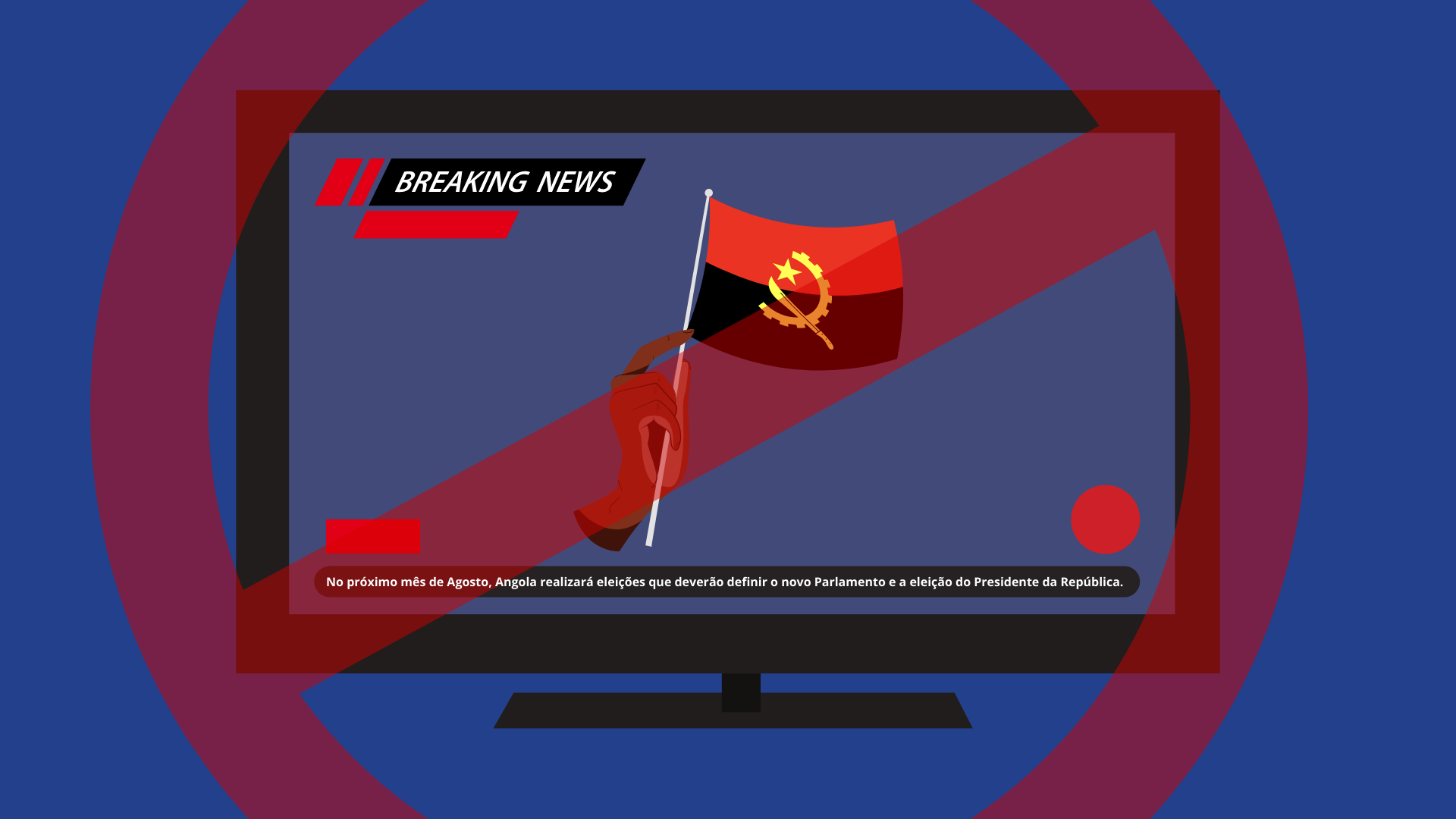
In April 2021, the government of Angola ordered the suspension of TV Record África's activities in the country, citing irregularities. Image: Giovana Fleck/Global Voices
Angola will hold elections in August 2022 that will establish the new Parliament and President of the Republic. The current Head of State, João Lourenço, of the Popular Movement for the Liberation of Angola (MPLA) party, was elected in 2017. Lourenço was elected after his predecessor, José Eduardo dos Santos, stepped down after more than 30 years in power
Founded in 1956, the MPLA has governed Angola since it gained independence from Portugal in 1975. Since then, it has been the largest party in the country and, as a result, controls various governance and social sectors, including the media.
During the tenure of José Eduardo dos Santos, Angola was seen as a country where freedom of expression and of the press was threatened, mainly because of bans on public demonstrations and arrests against opposition activists and politicians.
One of the emblematic cases, which was covered by Global Voices in 2016, is when 17 activists were detained after discussing a book that was considered a “weapon of war” by the previous government. They were released a few months later.
Constituents were hoping for change when they elected the current president in 2017. While he seemed promising when he first began his term, time shows that his time in office has proved to be more of the same. Under his office citizens still lack the right to demonstrate and face unjustified arrest and detentions.
Fundamental freedoms in an election year
Angola has seen tension increase since its 2017 elections, marked by protests and political disputes. In 2021 citizens took to the streets after an electoral law was approved, even though the main political actors in the country had not reached a consensus.
In addition to the protests, the media (traditionally dominated by the state in Angola) has also suffered a setback, especially on television channels and newspapers with greater circulation. The most recent incident has to do with the suspension of private television channels that operated in the country.
The first case dates from April 2021, when the government of Angola ordered the suspension of TV Record Africa's activities in the country, citing irregularities. Record is one of the largest commercial TV groups in Brazil. The Ministry of Telecommunications, Information Technologies, and Social Communication (MINTTICS) justified the suspension of the Brazilian TV affiliate on the grounds that its executive director is a “non-national” citizen.
On the same occasion, another media group, which operates broadcasting television channels, called ZAP was also suspended on suspicion of illegalities in its operations. At the time, the authorities said that the assessment carried out by that Ministry revealed that there were newspapers, magazines, and radio stations registered in the country, but that they are not effective operations.
In reaction to this, Angela Quintal, coordinator of the Africa program of the Committee for the Protection of Journalists (CPJ), called on the government to end the suspension, appealing to the executive to stop persecuting the media critical of the Government :
Com a aproximação das eleições do próximo ano, o Presidente João Lourenço e a sua administração deveriam promover a pluralidade de perspetivas nos ‘media’ e assegurar que o Estado não tem o monopólio da informação crucial para o público tomar decisões fundamentadas.
With next year's elections approaching, President João Lourenço and his administration should promote a plurality of perspectives in the media and ensure that the state does not have a monopoly on crucial information for the public to make informed decisions.
In January 2022, it was finally announced that the channels would be turned over to state management. It so happens that the Attorney General's Office decided that the management of the companies ZAP Media S.A and Finstar should be handed over to the Ministry that oversees the media in Angola, which must guarantee the reintegration of workers made redundant from the channel.
In its recent report on Angola, Human Rights Watch drew attention to the growing number of violations of fundamental freedoms in Angola, with a focus on the press sector.
O Comité de Protecção dos Jornalistas, CPJ, relatou pelo menos seis outros casos de queixas por difamação criminal contra jornalistas em Angola desde Março de 2021. Milhões de angolanos em todo o país continuam a ter acesso a informação livre, diversa e imparcial, uma vez que Angola continuou a ser o único país da África Austral sem estações de rádio comunitárias.
The Committee to Protect Journalists, CPJ, has reported at least six other cases of criminal defamation complaints against journalists in Angola since March 2021. Millions of Angolans across the country continue to have access to free, diverse and impartial information as that Angola remained the only southern African country without community radio stations.







